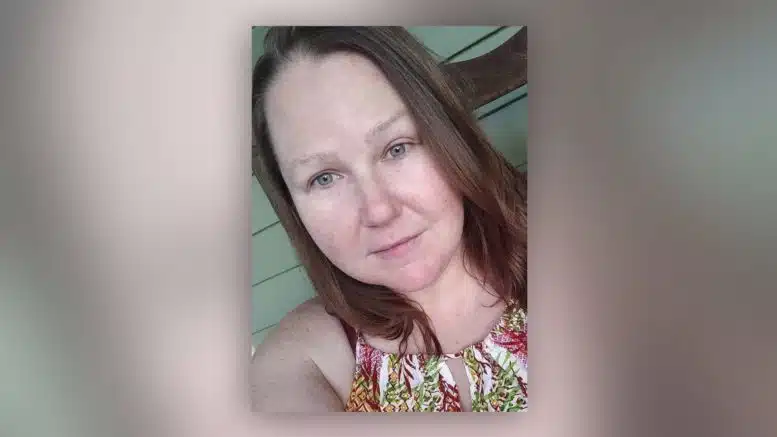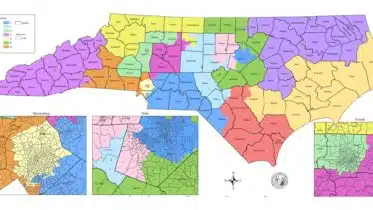By Jaymie Baxley
When DeAnna Brandon learned that North Carolina had become the 40th state to expand access to Medicaid, the Rowan County resident felt hopeful about her future for the first time in months.
Brandon, 45, was diagnosed last year with multiple myeloma, a rare blood cancer made more aggressive by her abnormally low chromosome count. The only way to meaningfully extend her life, her doctors said, would be an expensive stem cell transplant.
Unable to begin the process without health insurance, Brandon resigned herself to managing the symptoms of her cancer through chemotherapy. Her outlook changed after Gov. Roy Cooper signed Medicaid expansion into law this past March, making Brandon eligible for coverage.
But expansion will not officially take effect until a state budget is approved, something that’s taking longer than promised. Stalled negotiations between Republicans in the state Senate and House of Representatives means a final spending plan could still be several months away — time Brandon doesn’t have to spare.
“With them dragging their feet and taking their time on these decisions, it’s leaving literally my life in the balance,” she said. “This is the only way for me to buy more time to spend with my friends and family.”
Ticking clock
Brandon’s cancer was discovered through testing at Community Care Clinic of Rowan County, where a physician noticed irregularities in her blood.
“If it wasn’t for them, I still wouldn’t know I was sick, and I would just still be feeling bad,” Brandon said. “Between not having insurance and Medicaid not being expanded, they’re the ones filling the gap.”
After her diagnosis, Brandon didn’t allow herself to be consumed by panic or despair. Instead, she said, she “took the emotion out of it and dealt with the facts, like if I was helping someone else.”
It was an approach that came naturally to the mother of two, having spent the past decade caring for her children and for her own sick parents. During her second month of chemotherapy, however, the bleak reality of her condition began to sink in.
“I’m sitting there one day and I’m like, ‘This is really happening to me,’” she said. “It started hitting me, and you don’t know what to do with those emotions and all the information when it’s dealing with you. You don’t want to accept it.”
Brandon’s situation presents a Catch-22. While chemotherapy makes her life with multiple myeloma more manageable, the treatment takes a physical toll that has limited her ability to earn a steady income. The situation has left her with little hope of ever saving enough money to pay for a stem cell transplant out of pocket, or of having it covered through an employer-sponsored health insurance plan.
“I never know if I’m going to be awake all night and sleep all day or if I’m going to have an upset stomach,” she said. “I want to work, but there’s really no job, not even a desk job, where if you’re running to the bathroom every five minutes you can be dependable. If your head’s hurting from chemo and steroids or if you’ve had no sleep, you can’t be a dependable employee.”
Chemotherapy comes with one other, more ominous drawback for Brandon. According to her doctor, each round of treatment threatens to undermine the effectiveness of her badly needed procedure.
“If they keep doing chemo, they can damage my stem cells and not be able to do the transplant,” she said. “If he could at least harvest them now and we have to wait a few months to do the transplant, that would work for right now. But we can’t even find a way just to harvest the stem cells, a way to pay for it.”
The transplant could extend Brandon’s life by more than a decade. Without it, she could die in less than three years.
“The clock is, like, beyond ticking,” she said.
Impasse has multiple consequences
When Medicaid expansion was signed into law, it was heralded as a transformative event for uninsured residents.
About 600,000 people are expected to benefit from the legislation, which Cooper described at the time as a “once-in-a-generation investment” and a “historic step toward a healthier North Carolina.” Lawmakers in the legislature tied implementation of the measure to passage of a state budget so expansion could actually take effect, but the requirement was treated by many as a minor formality amid the bipartisan celebration over the legislation’s passage.
Lawmakers initially promised to have a spending plan ready by the beginning of the state’s fiscal year at the start of July. For months, they seemed like they were on track to meet that deadline. But once House and Senate negotiators sat down to hammer out the differences between the two chambers’ priorities, the process ground to a halt.
Given the current impasse facing the General Assembly, it now seems unlikely that a budget will emerge by summer’s end.
Potentially costly delay
Prolonged negotiations over the budget are threatening more than just the well-being of uninsured people with urgent health care needs like Brandon.
In a recent interview with N.C. Health News, Abby Emanuelson, executive director of the advocacy group Care4Carolina, said delaying expansion could have wide-reaching financial consequences for the state.
“Every day that the budget’s not passed delays when we can move this forward, which means several millions of dollars not coming to our communities and people not getting access to care,” she said.
State Health and Human Services Sec. Kody Kinsley acknowledged that the delay could also have financial ramifications. Part of the Medicaid expansion bill includes changing the way hospitals are paid for caring for Medicaid patients. Kinsley said that the Healthcare Access and Stabilization Program included in the Medicaid expansion bill needs to “go live” at the same time as expansion.
“If Medicaid Expansion and HASP don’t go live at the same time, we’ll miss out on an extra $60 million coming into North Carolina,” he told NC Health News in a series of texts.
Kinsley also noted that the federal government had incentivized North Carolina to expand Medicaid with a “signing bonus” topping $1.6 billion over two years that will not be paid out until “we enroll our first beneficiary.” Many lawmakers had hoped to spend a large chunk of that money on improving access to mental health services, he said.
Many will fall off — then back on — Medicaid
Further complicating matters, the delayed implementation of expansion coincides with a purge of the state’s Medicaid rolls.
A federal provision that prevented states from terminating Medicaid coverage during the COVID-19 pandemic expired in March, allowing North Carolina to disenroll residents for the first time in three years. More than 2.5 million existing Medicaid participants are expected to have their eligibility reviewed in monthly batches through March of next year, a process that is being called the “unwinding.”
While the people at greatest risk of losing coverage should be those who no longer meet the income requirements for Medicaid and children who have aged out of eligibility, experts fear an untold number of people who actually still qualify for the program will be dropped for what are essentially paperwork issues.
“This month, about 9,000 people will lose their Medicaid coverage who would have been able to keep it under expansion,” Kinsley wrote. “Processing those 9,000 for eligibility later will be double work for our counties which are already facing workforce challenges.”
The N.C. Department of Health and Human Services initially predicted that about 300,000 people would lose coverage, but data released Monday suggests the final tally could be much higher. The agency reported that 35,099 people were disenrolled in June, with only 14 percent of those terminations linked to residents who were actually determined to be ineligible for Medicaid.
Sign up for our Newsletter
“*” indicates required fields
DHHS has confirmed that many of the people whose benefits are terminated in the coming months will become eligible again once expansion is implemented. But with a date for passing the budget not yet in sight, displaced beneficiaries are likely to experience gaps in their health care until the budget is approved.
“We have done everything we can to be ready and now we are in a holding pattern,” Kinsley said. “We have a lot happening in our Medicaid program right now, and not having the flexibility to time expansion just right is tying our hands and limiting our ability to bring the most possible good to North Carolina.”
Meanwhile, for Brandon, the political stalemate surrounding the budget can’t end soon enough.
“It’s not like I expect something to be handed to me,” she said. “But to know that there is a program that the government has that’s being withheld is very frustrating. When you can’t get health care that you need, and it’s right there and it’s obvious what you need, it just feels like you’re not worthy.”











